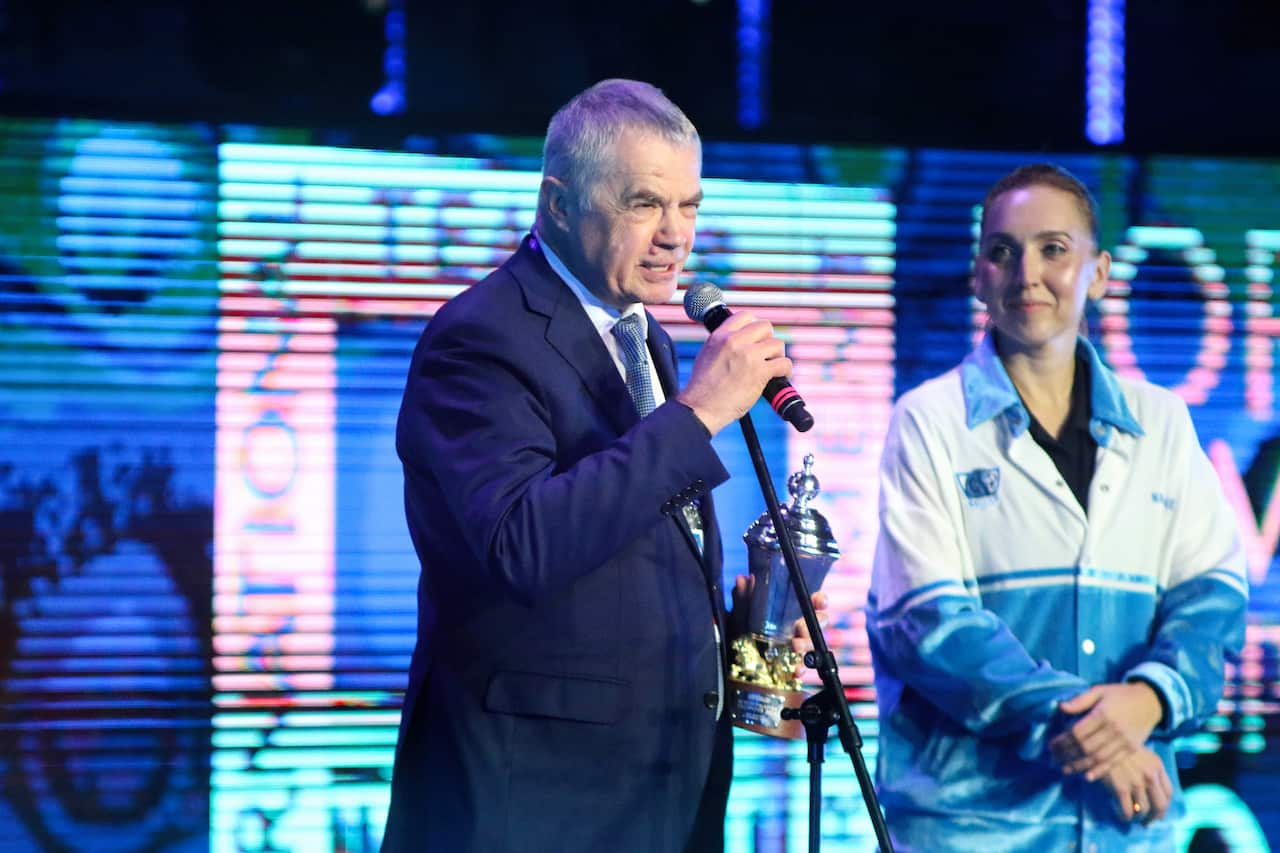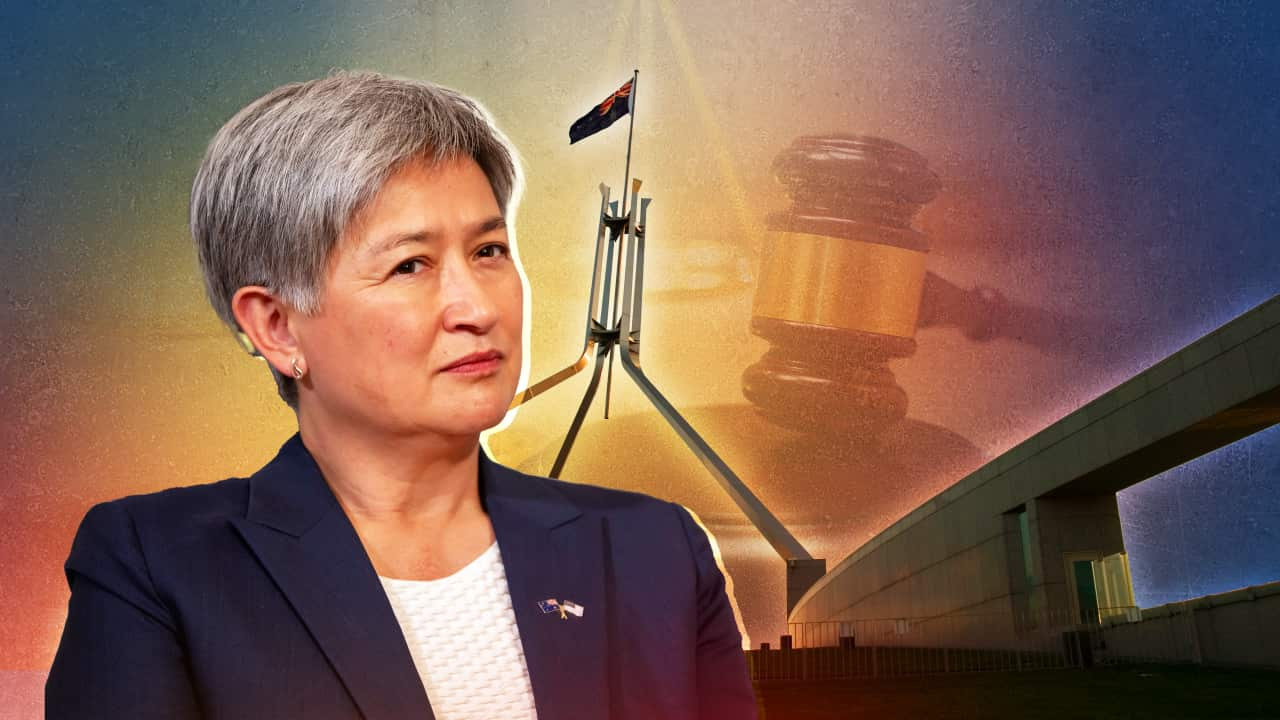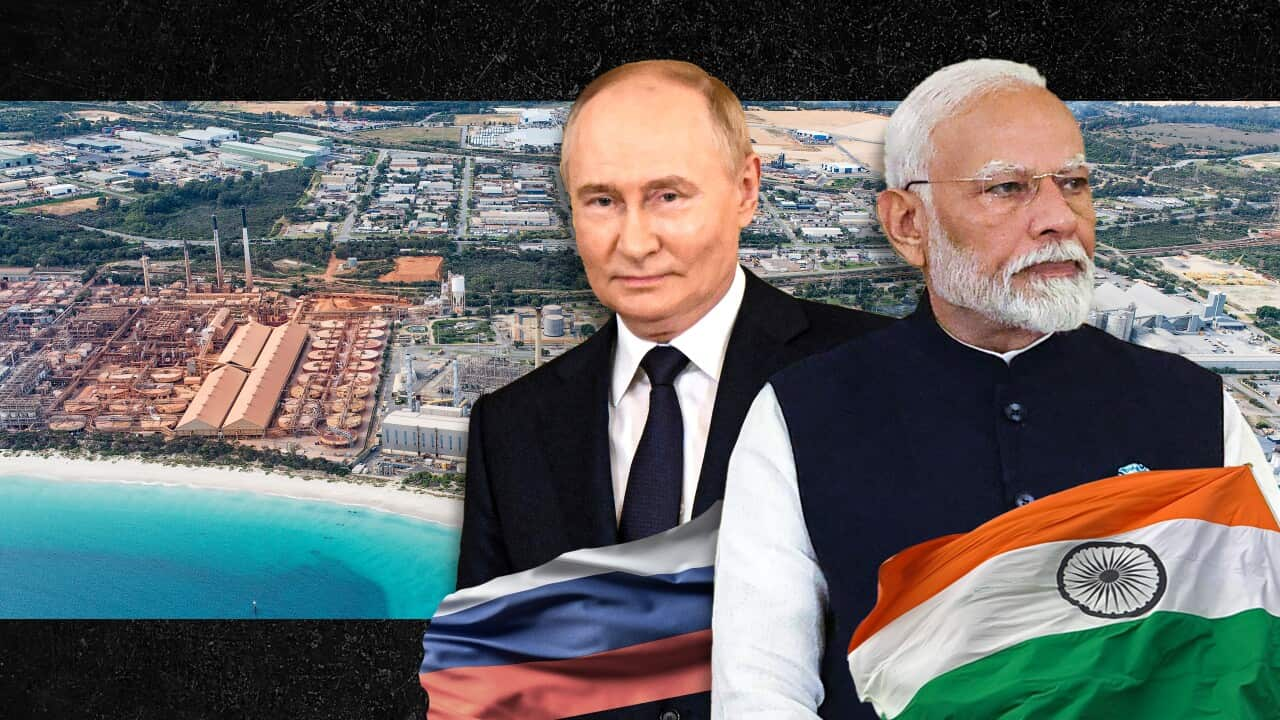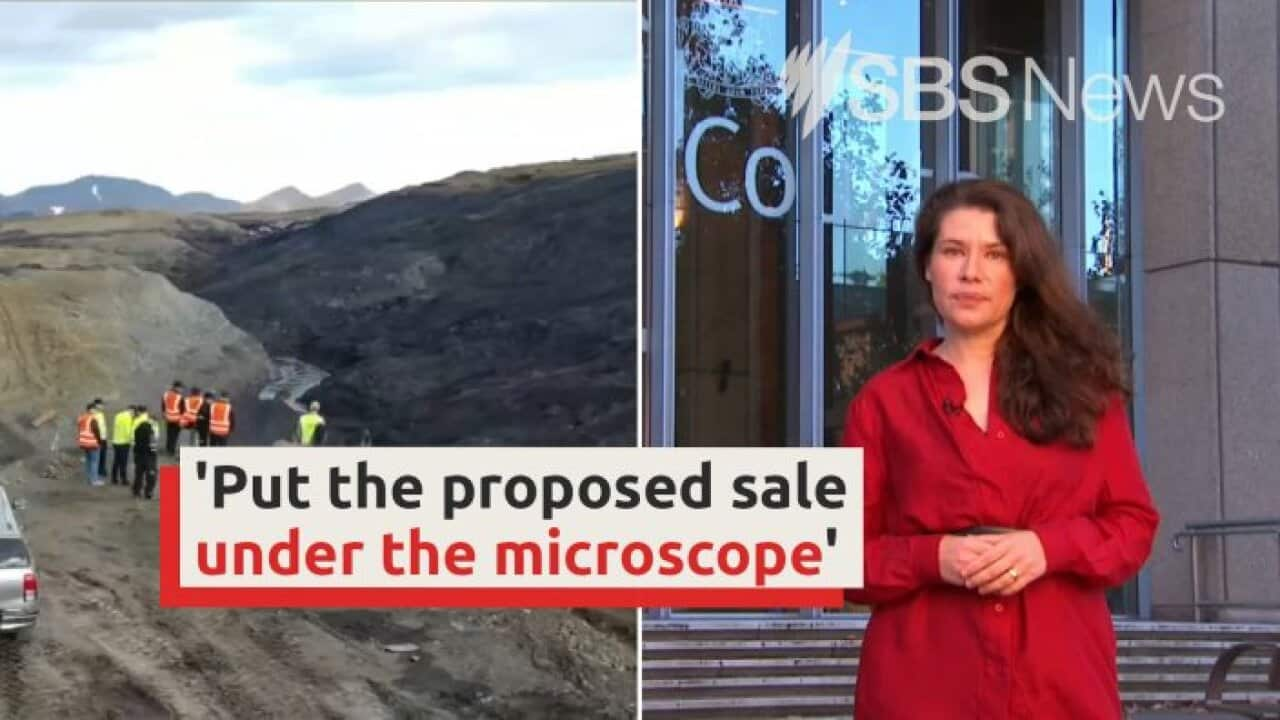Key Points
- Australian tennis player Thanasi Kokkinakis recently participated in an exhibition tournament in Russia sponsored by state oil and gas company Gazprom.
- The company, a few of its subsidiaries and top management are under sanctions in Australia.
- Dealing with property that is owned or controlled by entities on the sanctions list could put an individual in 'legal jeopardy', a law expert says.
Australian tennis player Thanasi Kokkinakis recently took part in the Northern Palmyra Trophies exhibition tournament held in St Petersburg, Russia, between 29 November and 2 December, 2024.
The tournament, which is not affiliated with the Association of Tennis Professionals (ATP) or Women's Tennis Association (WTA), was sponsored by Russian state-owned gas and oil company Gazprom.
Gazprom, some of its subsidiaries and top management are under in a number of countries, including Australia.
While Australia does not prohibit participating in tournaments in Russia, international law experts say there are potential implications for athletes when dealing directly or indirectly with assets of a sanctioned entity.
Representatives of Kokkinakis did not respond to SBS Russian's requests for comment by the time of publication.
What happened?
Kokkinakis's participation in exhibition matches became a talking point after TV commentator and former tennis player Todd Woodbridge questioned his scheduling decisions as he battled injury ahead of the Australian Open.
"Yes, the money's great and we all love putting that in our pocket and that's exactly what he did, but that schedule hurts to start the year," Woodbridge said on.
Speaking after his match on 13 January, Kokkinakis responded by saying he was "trying to make a living".
"Unfortunately, ATP sometimes, if you make a semi-final of a 250 event (a tournament on the ATP that awards 250 ranking points to the winner), you don’t get as much as what you would playing an exhibition," he said.

The Northern Palmyra Trophies tennis tournament is held in St Petersburg and is sponsored by Russian state-owned gas and oil corporation Gazprom. Credit: Formula Tennis&Hockey
"Since 2022, due to the world geopolitical situation, international professional competitions have left Russia, but it was important for the organisers to preserve the tennis heritage that has developed over these years," the tournament's media kit reads.
Alongside the Australian star, the 2024 tournament attracted international tennis players like Alexander Bublik and Yulia Putintseva from Kazakhstan, Viktoriya Tomova from Bulgaria, Dušan Lajović from Serbia, and Roberto Bautista Agut and Pedro Martínez from Spain.
In 2023, WTA and ATP told Reuters that they do not support the tournament held in Russia, but would not penalise players taking part in it.
What does Australian law say?
According to Dr Anton Moiseienko, senior lecturer in law at the Australian National University, it’s difficult to give any "definitive conclusion" as to whether participating in a tournament sponsored by a sanctioned company is in breach of Australian sanctions.
He explained to SBS Russian that, according to the Australian sanctions law, it is prohibited "to deal with controlled assets" of the sanctioned individuals or entities.
"Now what are controlled assets? Controlled assets are assets owned or controlled by a designated person or entity," Moiseienko said.
If you're dealing with the property that is owned or controlled by Vladimir Putin, Gazprom, Kim Jong-un, or any other person on the sanctions list, you are potentially in legal jeopardy because of Australian sanctions.Dr Anton Moiseienko, senior lecturer in law at the Australian National University
"What that means is that if you receive payment from any of those individuals, you need to consider the implications.
"Are you dealing with the property that belongs to those people? So that's the state of the law," he said.
The Northern Palmyra Trophies tournament's director general is Alexander Medvedev, who served as deputy chairman of the board of Gazprom between 2014 and 2019 and general director of Gazprom Export between 2006 and 2014. Today Medvedev serves as an adviser to the director general of Gazprom Export.
He is not under sanction in Australia, but sanctions have been imposed on a number of other Gazprom top managers, as well as Gazprom itself, Gazprom Media and Gazprombank.
In a statement to SBS Russian, a spokesperson for the Department of Foreign Affairs and Trade said: "Australian sanctions laws apply to all activities in Australia, and extraterritorially to all activities by Australian individuals and bodies corporate overseas. Australian entities are expected to conduct due diligence before undertaking activities that may otherwise violate Australian sanctions laws.
"The Australian Sanctions Office is Australia’s sanctions regulator and takes all necessary steps to ensure Australians and Australian business are in compliance with Australian sanctions law.
"We do not comment publicly on compliance matters."
Why is Russia's main gas company investing in sport?
Alexander Beglov, governor of St Petersburg, wrote in his foreword in the media kit of the tournament that Gazprom is "a long-time and a reliable partner of the Northern Capital (St Petersburg)".
"The company helps to hold significant events that increase the sporting glory of our city and country, introducing the values of a healthy and active lifestyle," he said.
According to Ilya Shumanov, director of Transparency International Russia, Gazprom is "a significant resource" for the Russian authorities in terms of promoting their own policy and "soft power projects" abroad.
In 2023, Transparency International Russia was designated as "undesirable" by the Russian prosecutor-general's office, and the organisation has since been working in exile.
"Gazprom was famous for its investment in sports teams in different countries: from volleyball in the Netherlands to football in Germany. And, of course, events, sports teams and entire leagues within Russia," Shumanov explained.
According to Shumanov, Gazprom is "forced" by the state to continue supporting local sport and social projects, while other companies can't afford to do so in the current "catastrophic economic situation" in Russia.
"This is done mainly in order to demonstrate that sports are still an important part of Russia and that Russia is still at the top of sports. (It is important) since we know that the sanction isolation has limited Russia on all fronts."
Who is Alexander Medvedev, the director of the tournament?
Medvedev is also the president of the Zenit St Petersburg football club and chairman of the board of directors of SKA hockey club, both of which are financed by Gazprom.
Shumanov described Medvedev as a well-known bureaucrat in Russia with personal connections to Vladimir Putin.
"I would call him a Russian state and sports manager. He has been with Gazprom since the 2000s. That is, he joined Gazprom at almost the same time as Vladimir Putin came to power. He worked at Gazprom until 2019 and remains its adviser today."

Since 2010, Alexander Medvedev has been in charge of some of the most prominent sports projects of Gazprom, slowly transitioning from Gazprom's export branch to become its sports manager. Source: LightRocket / SOPA Images/LightRocket via Getty
"Until 2014, he headed the Continental Hockey League. This is the main hockey league and is a very important entity in terms of sports management within Russian sports," Shumanov said.
Medvedev is not only the general director of the Northern Palmyra Trophies tournament, but also one of the co-founders of the tournament organiser company, Formula Tennis & Hockey.
According to the registration data, one of the co-founders of the Formula Tennis & Hockey Company is an entity named the Autonomous Non-Commercial Organization Gazpromexport Social, Cultural and Sports Club, with Medvedev as its head.
No legal precedent
Moiseienko explained that there is no legal precedent in Australia where an Australian citizen has been dealing directly or indirectly with assets of a sanctioned entity.
However, there was an example of a reverse situation, where an Australian company potentially faced the risk of making property indirectly available to a sanctioned person.
"There was a joint venture between Rio Tinto and Rusal, a major Russian aluminium company. Rio Tinto decided that they could not continue that relationship because Rusal was partly owned by two sanctioned Russian individuals. The court decided that Rio Tinto acted lawfully in doing so," he said.
"The implication of the judgment is that if you deal indirectly with a sanctioned person and you engage in a transaction from which some economic benefit ensues to the sanctioned person, then that can be caught by Australian sanctions laws.
"We don't know exactly how broad the interpretation is: what exactly it means to provide a benefit indirectly to a sanctioned person, how narrowly, how broadly that should be interpreted.
"But that judgment suggests that the interpretation is pretty broad and so one's got to be very careful when dealing even indirectly with sanctioned persons.
"Applying this sort of reasoning, it doesn't necessarily matter, whether or not you are directly engaging with the sanctioned person so long as you come into contact with the property of a sanctioned person — assets that are owned or controlled by a sanctioned person — that can be captured by Australian sanctions."



